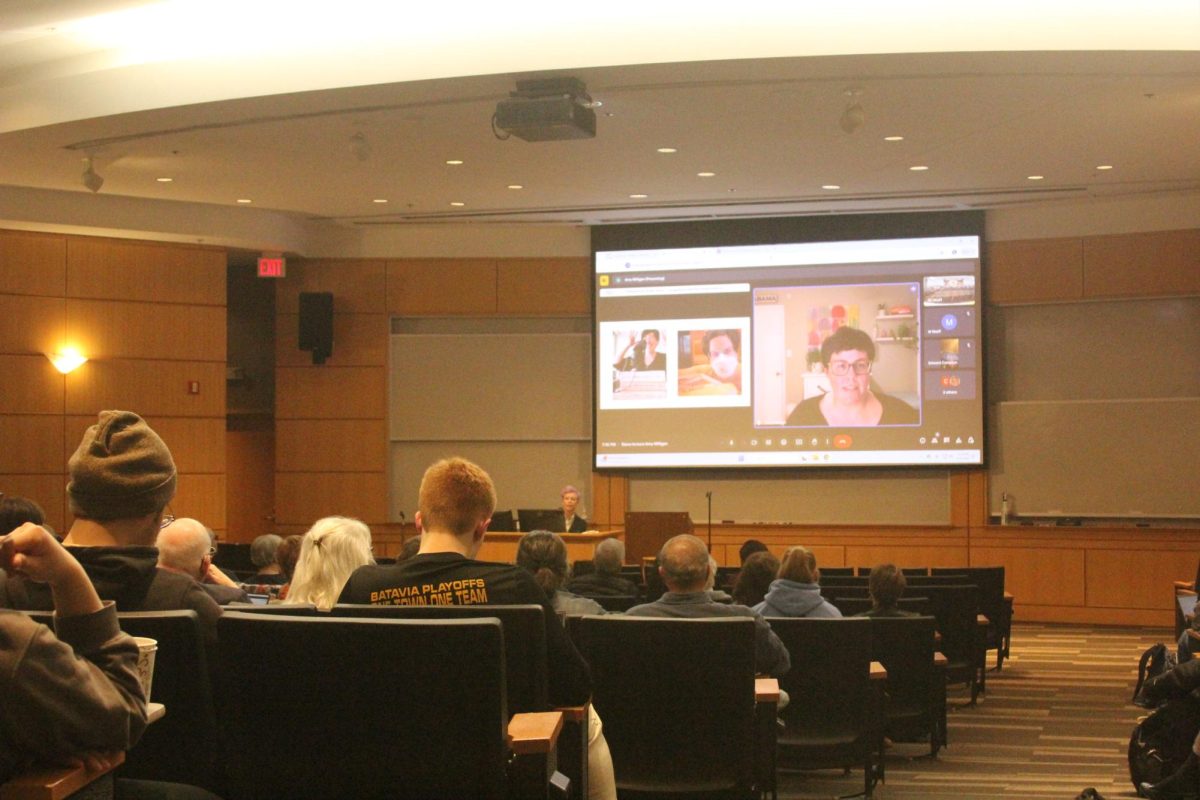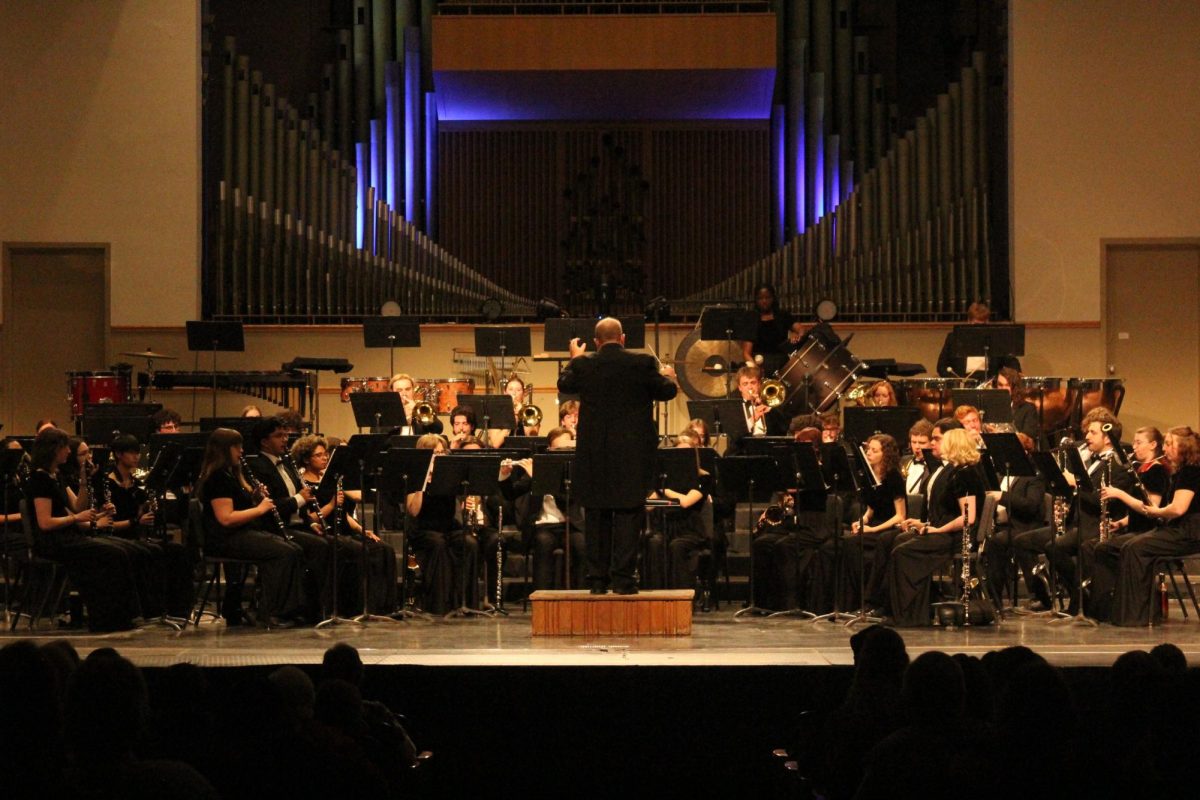Following the departure of Monica Smith at the end of the 2022-2023 school year, Augustana’s Office for diversity, equity and inclusion (DEI) continues efforts to support student-led events, maintain a welcoming campus environment and improve staff awareness of diversity issues. Lisa Durant-Jones, the newly-appointed interim vice president of DEI, said that, “diversity,” “equity” and “inclusion” each represent their own set of goals.
“When I think of diversity, I think of the recognition that there’s individual and group differences amongst members of the campus community,” Durant-Jones said. “We can’t ignore that those individual or group differences contribute to the unique skill sets that people bring to campus.”
The word “equity” shares a root with the word “equality,” but they don’t share exactly the same meaning. Durant-Jones said that in order to promote equity, the college must focus on the impacts of student differences.
“There’s a varying degree of skills that people bring to higher ed, which can contribute to or inhibit their ability to be successful. In order to make things equitable, it doesn’t mean equal,” Durant-Jones said. “It means to really recognize the variations within individual or group differences and provide the support that will allow individuals to thrive in higher ed.”
If diversity represents the recognition of students’ varied backgrounds and if equity represents the availability of support with respect to unique challenges, then where does inclusion fall? The answer, Durant-Jones said, is making inclusion an active practice.
“Inclusion is really looking at how we purposely engage differences within the institution so that people can thrive and feel like they belong,” Durant-Jones said.
In line with these values, Augustana’s DEI leadership constitutes a diverse group of individuals. Ashley Allen works as the director of the office for student inclusion and diversity (OSID). Allen said that the college provides opportunities for student involvement in DEI across campus.
“We partner with the admissions office, so if there are students that want to learn more about who we are, we offer all students an opportunity to meet with our staff,” Allen said.
Coming to campus also gives prospective students a chance to interact with students like them and truly envision themselves at Augustana.
“Student ambassadors are the face of admissions and allow students to take tours on campus,” Allen said. “I know that they’re looking at having diverse students to represent our population, so they’ll be able to address some of the different needs that prospective students may have on their visit.”
In addition to inviting new students to learn more about DEI, Allen said that Augustana hosts events intended to draw a more diverse student body to the school.
“We have a Shades of Beauty annual conference for women of different diverse backgrounds, so we’ve reached out to local prospective students who would be interested in entering,” Allen said.
An Augustana newsletter from April 1, 2022, describes the conference as “a gathering of women to share, discover and celebrate their beauty.” Last year’s event featured a panel of local businesswomen and leaders in DEI.
Events like Shades of Beauty are not the only way to highlight diversity at Augustana. Allen said that, as many students’ first experience with the college, campus tours can be helpful in highlighting an increasingly diverse student body.
Xong Sony Yang leads Augustana’s Office of International Student and Scholar Services (OISSS). She said that since joining Augustana in 2019, the college’s relationship with international students has blossomed.
“In May of 2019, we only had 10 percent, nearing 11 percent, international students [in the student body]. Now we are above 15 percent, and that’s just been growing,” Yang said.
A table available through Augustana’s website titled, “Augustana College Student Diversity” shows the extent of this growth. In 2015, nonresident international students made up just over four percent of enrolled students. Current enrollment represents a 250 percent increase over that figure. Yang said that the college’s investments in DEI are also strengthening student groups.
“We have the quiet space [in Lindberg Center], which was a great project because we understood that there needed to be a space for students to practice religion,” Yang said. “We knew that there was growth in student cultural groups being built, and the Nepalese student organization grew from that. The Muslim Student Association also came out of that.”
In addition to providing physical space for diverse religious practices, Augustana hosts events intended to support those religious groups. Allen said that growth in DEI has facilitated campus wide religious events.
“When we had the celebration of Ramadan, the whole campus came together,” Yang said. “Offices offered to pay for meals on Friday for students of faith. In a big celebration of Eid, we were then able to come together as a community and celebrate breaking fast when the celebration of Ramadan was done.”
Even through personnel changes with the departure of both Monica Smith and LGBTQ+ coordinator Daisy Moran, DEI at Augustana continues to be prized, powered and promoted by students. Sophomore Diya Adhikari, an international student from Nepal, works as a student ambassador in OSID.
“We organize programs and create awareness about inclusivity and diversity on campus and make everyone involved,” Adhikari said.
Adhikari said that there are upcoming events from many groups with the focus of drawing attention to Augustana’s diverse population.
“The Latinx Unidos student anniversary is next weekend, and every first Friday of each month we have different programs to help students feel included,” Adhikari said. “Because of the Latinx Unidos anniversary, this month we’ll have a ‘second Friday’ on October 13, and our theme is ‘Home Away From Home.’”
Adhikari said that the office helped her find a home at Augustana.
“I am an international student, and I did not know about [OSID] during my first year. You’re not only leaving your home, but coming to a whole new country,” Adhikari said. “I wanted to find a place that’s very diverse so I could learn and teach about my own culture.”
Drawing on her own experience, Adhikari said that word-of-mouth promotion of safe spaces can create a welcoming environment for incoming students.
“Every time I see a Nepalese [First-Year] or any international student, I always tell them that there’s a safe space here,” Adhikari said. “This is our home away from home, and everyone’s invited.”



































































































